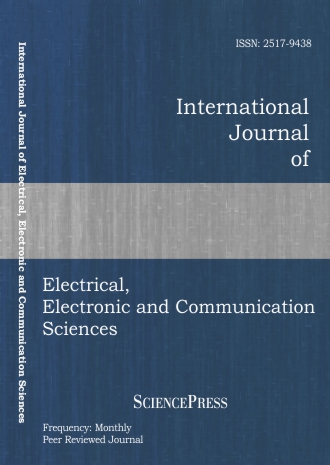
Scholarly
Volume:8, Issue: 7, 2014 Page No: 1099 - 1105
International Journal of Electrical, Electronic and Communication Sciences
ISSN: 2517-9438
1444 Downloads
Analysis of Electrical Networks Using Phasors: A Bond Graph Approach
This paper proposes a phasor representation of
electrical networks by using bond graph methodology. A so-called
phasor bond graph is built up by means of two-dimensional bonds,
which represent the complex plane. Impedances or admittances are
used instead of the standard bond graph elements. A procedure to
obtain the steady-state values from a phasor bond graph model is
presented. Besides the presentation of a phasor bond graph library in
SIDOPS code, also an application example is discussed.
References:
[1] Chas. Proteus Steinmetz, "Complex Quantities and their use in Electrical